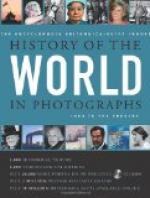to fishing in the sea. Ascribed to the 13th or
14th century is a Latin poem De Vetula, whose
author was apparently Richard de Fournival. It
contains a passage on angling, and was placed to the
credit of Ovid when first printed (c. 1470). A
manuscript in the British museum, Comptes des pecheries
de l’eglise de Troyes (A.D. 1349-1413),
gives a minute account of the fisheries with the weights
of fish captured and the expenses of working.
There is, however, practically nothing else of importance
till we come to the first printed book on angling
(a translation of Oppian, 1478, excepted), and so
to the beginning of the literature proper. This
first book was a little volume printed in Antwerp probably
in 1492 at the press of Matthias van der Goes.
In size it is little more than a pamphlet, and it
treats of birds as well as fish:—Dit
Boecxken leert hoe men mach Voghelen ... ende ...
visschen vangen metten kanden. Ende oeck andersins....
("This book teaches how one may catch birds ... and
... fish with the hands, and also otherwise").
Only one copy apparently survives, in the Denison
library, and a translation privately printed for Mr.
Alfred Denison in 1872 was limited to twenty-five
copies. At least two other editions of the book
appeared in Flemish, and it also made its way, in
1502, to Germany, where, translated and with certain
alterations and additions, it seems to have been re-issued
frequently. Next in date comes the famous Treatyse
of Fysshynge wyth an Angle, printed at Westminster
by Wynkyn de Worde in 1496 as a part of the second
edition of The Book of St. Albans. The
treatise is for this reason associated with the name
of Dame Juliana Berners, but that somewhat dubious
compiler can have had nothing whatever to do with
it. The treatise is almost certainly a compilation
from some earlier work on angling ("bokes of credence”
are mentioned in its text), possibly from a manuscript
of the earlier part of the 15th century, of which
a portion is preserved in the Denison collection.
This was published in 1883 by Mr. Thomas Satchell
under the title An Older Form of the Treatyse of
Fysshynge wyth an Angle. But it is also possible
that a still older work was the parent of both books,
for it has been held that the manuscript is an independent
version. However this may be, it is certain that
the treatise itself has been the parent of many other
works. Many of the instructions contained in
it are handed down from generation to generation with
little change except in diction. Especially is
this the case with the list of trout-flies, a meagre
twelve, which survives in many fishing books until
well into the 18th century.
[v.02 p.0023]




